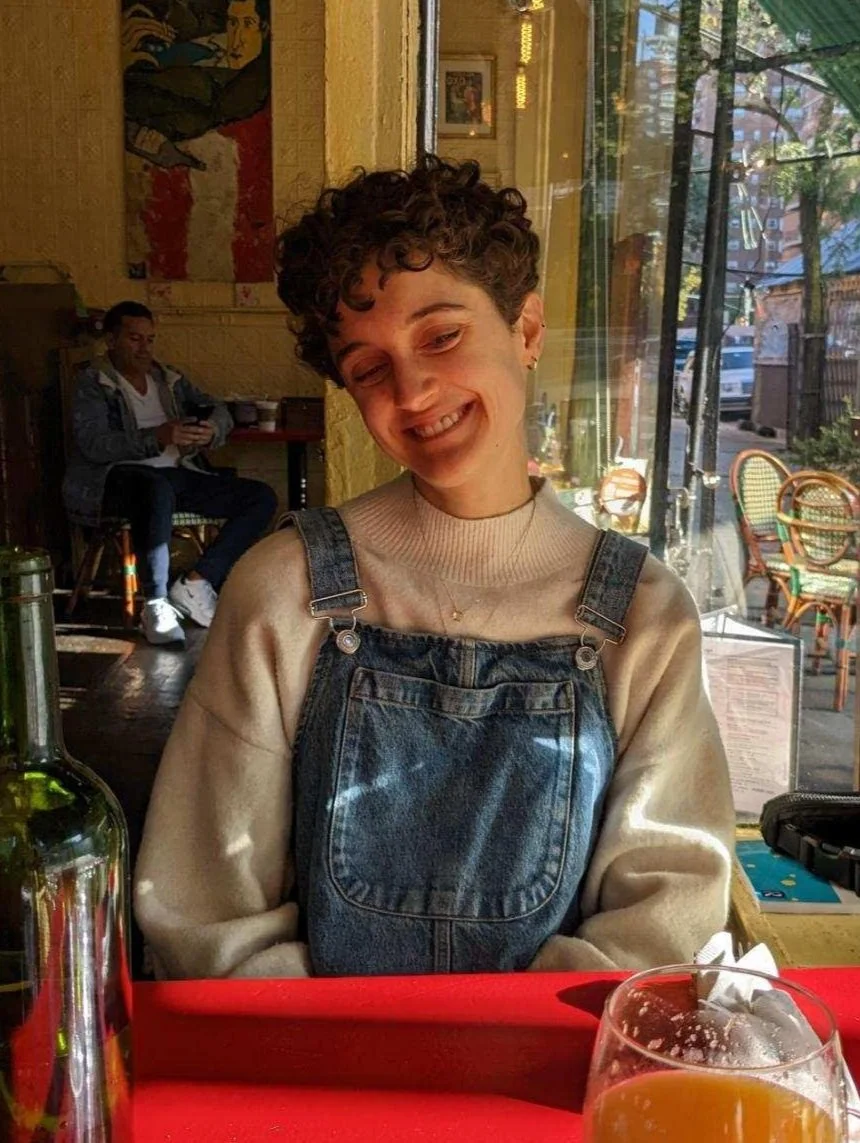Hollis Montessori opened in 2008 with classes for children age 3 through 6th grade. In 2011, we added the Adolescent Program for grades 7-9. As a young school, we have fairly young alumni, but after 15 years, some of our alumni have become adults. Over the next few issues, we will be featuring stories about them in our “Where Are They Now” series. In Part Two, we talked to Allie Campbell.
Allie left HMS after 9th grade in 2014, completed high school at Hollis Brookline High School and graduated from Williams College in Williamston, MA. She moved to New York City in 2021 to pursue a graduate program at Columbia Teachers College–with the intention of being a public school teacher. Before her program started though, she got a job at The New York Foundling, a large social work agency as a full-time tutor for middle school students in foster care. While there, she made a connection with her current supervisor, and started collaborating on projects that bridged mental health and education. “I realized that I was incredibly interested in and committed to the work that she was doing in child welfare and I unenrolled from Columbia.” She knows that “teaching will always be there for me,” and may still go back to her earlier plan, “life is long!”
Now, Allie is a Community Psychiatric Supports and Treatment (CPST) Provider at New York Foundling. Her role focuses on “holistic, community care, and my team implements art healing, and restorative justice practices. I spend a lot of time supporting folks in finding wellbeing through art and community.” Most of her clients are youth and families involved in the child welfare system. Allie calls herself an abolitionist, working to center alternative care practices to counter the tendency of psychiatric care and child welfare in “to uplift racist traditions of policing, incarceration, surveillance, and control.” “I truly love my job,” says Allie, “and I feel very lucky to have found this role.”
Last fall, Allie and her supervisor started an art healing group for students at an elementary charter school in the Bronx, which “has been a blast so far!” They co-facilitated a day of art, resource-sharing, and Fall festivities at a community garden in the Bronx, which was “a huge success from start to finish.”
Allie recently moved from Harlem to Brooklyn, and she loves her new neighborhood. “It feels calmer, slower, and more down-to-earth than the rest of the city. There's also a lot more green space.” She is also lucky to have many of her closest friends from College also living in New York. She met her current roommates through college friends, and “they are both incredible people and roommates.” In her spare time, she hangs out with friends, paints, reads, bakes, and explores the city.
We asked Allie how her Montessori experience affected her pathway to adulthood, and she said “Montessori shaped who I am and how I think!” She feels that every part of her life, both personal and professional, has been influenced by the time she spent in Montessori classrooms while growing up. “Montessori,” she says, “ gave me an appreciation for learning, the outdoors, art, and interdisciplinary thinking.” She feels that she values and actively cultivates these things more and more as she “navigates adulthood.”
Professionally, Allie feels that her Montessori background informs the way she approaches her work as an educator and a mental health provider. “Just as Montessori uplifts the idea that students should be leaders in their learning, I believe individuals should be empowered to drive their healing process. Montessori entrusts students with the freedom and responsibility to shape their education on the basis that they are inherently curious, independent, capable, and drawn to challenge.” In other words, “students can be trusted to create learning experiences for themselves that are as (or more!) valuable than anything an educator could provide.” She feels that this idea is also how her team approaches mental health and child welfare. “We believe that all people--regardless of psych diagnoses they may have received--want to heal, achieve their goals, and do right by their family and community. And we believe that all people possess inherent strengths that can serve these goals.” While she notes that there is a lot of nuance to this approach, and that, like Montessori education, “both are frequently misunderstood and underestimated,” she feels that “in this sense, Maria Montessori's approach to education mirrors my work as an abolitionist mental health provider.”

